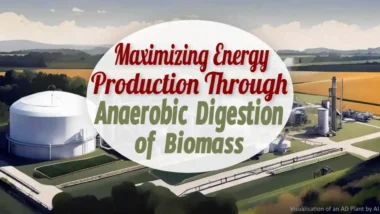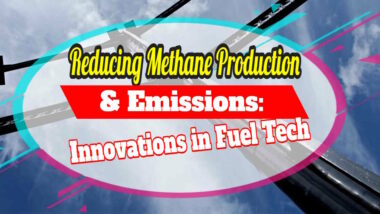The Economic Boom of Biomethane Investment: How the EU27 + Investment is Reshaping the Future. We might also call this article “Green Gold: How Biomethane is Fueling Europe’s Economic Future!
Introduction
- The European Biogas Association report highlights a new study indicating that the whole-system benefits of biomethane, in terms of monetary value, significantly surpass its current production costs. This suggests that investing in biomethane is not only environmentally beneficial but also that biomethane plays a crucial role in the energy sector of the EU27 and the UK.
- The development of biomethane is significant to the EU27 and the UK energy sector. It represents a key renewable energy source, contributing to the reduction of carbon emissions and aiding in the transition to economically advantageous in the long run.
- Read on to find out more about this exciting topic, and hwy we are not exagerating when we talk about “green gold”.
Understanding Biomethane Investment
What is Biomethane?
Biomethane is a renewable energy source produced from organic materials like agricultural waste, manure, municipal waste, plant material, sewage, green waste, or food waste. The production process involves anaerobic digestion, where microorganisms break down these materials in the absence of oxygen, producing biogas. This biogas is then purified and upgraded to biomethane, a renewable natural gas.
Differences Between Biomethane and Other Biofuels
Unlike other biofuels, biomethane is primarily methane (CH4) and can be used interchangeably with conventional natural gas. This distinguishes it from bioethanol and biodiesel, which are liquid biofuels made from crops like corn, sugarcane, or soybeans.
The Role of Biomethane in Renewable Energy
Biomethane in the Context of Renewable Energy Sources
Biomethane is a crucial component of the renewable energy mix, offering a versatile and flexible energy source that can be used for heating, electricity generation, and as a vehicle fuel.
Environmental Benefits of Biomethane
It significantly reduces greenhouse gas emissions compared to fossil fuels. The use of waste materials for its production also helps in waste management and promotes a circular economy.
Projected Economic Benefits by 2030
Analysis of the 38-78€ Billion Projection
By 2030, the European Biogas Association estimates that biomethane could contribute between 38-78€ billion to the European economy. This projection accounts for the benefits of reduced greenhouse gas emissions, job creation, and energy security.
Comparison with Current Energy Investments
When compared to current investments in fossil fuels and nuclear energy, biomethane presents a cost-effective and sustainable alternative, offering long-term economic and environmental returns.
Key Factors Driving Growth
Technological Advancements in Biomethane Production
Innovations in anaerobic digestion technology and biogas purification are making biomethane production more efficient and cost-effective.
Policy and Regulatory Frameworks Supporting Biomethane
Governments across Europe are implementing policies and regulations that incentivize biomethane production and use, including subsidies, tax breaks, and renewable energy targets.
Market Demand and Consumer Awareness
Increasing consumer awareness of the environmental impact of energy choices is driving market demand for cleaner, renewable energy sources like biomethane.
Long-Term Vision – 2050
The 2050 Economic Forecast
Detailed Look at the 133-283€ Billion Projection
By 2050, the biomethane industry could contribute an estimated 133-283€ billion to the EU27 + UK economies. This forecast considers the potential for technological innovations, policy developments, and market growth over the next three decades.
Sectors Poised for Transformation
Impact on Agriculture, Waste Management, and Energy
Biomethane production can transform the agriculture and waste management sectors by providing a sustainable way to manage waste and produce energy. It also offers a renewable alternative to traditional energy sources in the energy sector.

Case Studies of Successful Biomethane Projects
Examples of successful biomethane projects across Europe highlight its potential. These case studies demonstrate the economic, environmental, and social benefits of biomethane, serving as models for future projects.
Comparative Analysis with Luxembourg and Finland
GDP Comparison: Luxembourg and Finland
Luxembourg and Finland, with their distinct economic profiles in 2021, provide a varied context for understanding biomethane’s impact. Luxembourg, with a high GDP per capita, has a strong financial sector, while Finland, with its robust technology and manufacturing sectors, presents a different economic landscape.
Scale of Biomethane Benefits Relative to These Economies
Biomethane’s benefits in these economies are scaled differently. In Luxembourg, it might contribute to energy diversification, while in Finland, it could complement existing renewable energy initiatives, reflecting the varying economic contexts.
Lessons from Luxembourg and Finland
Economic Strategies of Luxembourg and Finland
Luxembourg’s focus on financial services and Finland’s emphasis on technology and manufacturing provide unique insights into how biomethane can be integrated into different economic frameworks.
Potential Lessons for Biomethane Market Development
Understanding how Luxembourg and Finland approach energy sustainability and economic growth can inform strategies for biomethane market development in similar economies.
Challenges and Opportunities
Overcoming Barriers to Biomethane Adoption
Technical, Economic, and Regulatory Challenges
Technical challenges include improving biomethane production efficiency. Economic barriers involve cost competitiveness, while regulatory challenges encompass the need for supportive policies.
Strategies for Overcoming These Barriers
Adopting advanced technologies, securing investment, and advocating for favorable policies are key strategies to overcome these barriers.
Future Opportunities in Biomethane
Emerging markets offer new demand opportunities, while technological advancements can enhance production efficiency and expand applications.
Potential for International Collaboration and Trade
International collaboration can facilitate technology exchange, while trade can open up new markets for biomethane, promoting global renewable energy goals.
Biomethane Investment in Europe – A Conclusion
According to a recent analysis published by the European Biogas Association, the total system benefits of biomethane production in the EU27 + UK could amount to between 38 and 78 billion euros annually in 2030, and between 133-283 billion euros by 2050.
This is a truly significant biomethane investment because these amounts are equivalent to the GDPs of Finland and Luxembourg in 2021, respectively.
Recap of Key Findings from the European Biogas Association Report
The report underscores biomethane’s significant economic potential and its role in achieving environmental goals in the EU27 + UK.
The Strategic Importance of Biomethane for the EU27 and the UK
Biomethane’s role in diversifying energy sources, reducing carbon emissions, and contributing to economic growth highlights its high strategic importance.
Future Outlook and Recommendations
The outlook is promising, with recommendations focusing on continued investment, policy support, and technological innovation to realize biomethane’s full potential.
Other Titles we consider for this Article!
- “Biomethane Bonanza: EU27 + UK’s Lucrative Path to 2050”
- “Green Gold: How Biomethane is Fueling Europe’s Economic Future”
- “The Renewable Revolution: Biomethane’s Billion-Euro Promise for Europe”
FAQs
Q1: What is Biomethane and Why is it Important?
A1: Biomethane is a renewable energy source produced from organic waste. It is important for its role in reducing greenhouse gas emissions and contributing to sustainable energy systems.
Q2: How Does the Economic Potential of Biomethane Compare to Traditional Energy Sources?
A2: Biomethane’s economic potential is increasingly competitive with traditional energy sources, offering long-term economic and environmental benefits.
Q3: What are the Main Challenges Facing Biomethane Production and How Can They be Addressed?
A3: Challenges include production efficiency, cost, and regulatory barriers. Addressing these requires technological innovation, financial incentives, and supportive policies.
Q4: What Implications Does the Growth of Biomethane Have for the Global Renewable Energy Market?
A4: The growth of biomethane signifies a shift towards more sustainable and diverse energy sources, impacting the global renewable energy market by providing a viable alternative to fossil fuels.




